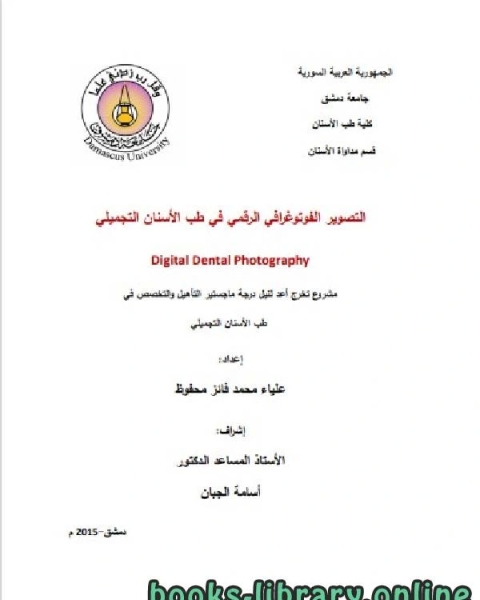
كتاب 11 Pedodontics
تحميل كتاب 11 Pedodontics pdf 11.Pedodontics 1. BEHAVIOUR MANAGEMENT(WR IGHT 1975)-IS DEFINED AS THE MEANS BY WHICH THE DENTAL HEALTH TEAM EFFECTIVELY AND EFFICIENTLY PERFORMS DENTAL TREATMENT AND THEREBY INSTILLS A POSITIVE DENTAL ATTITUDE. 2. PARENTAL ANXIETY-maternal anxiety and child’s co operative behaviour at the first dental visit has significant corelation.it is because of child parent symbiosis that begins in infancy and gradually diminishes. The effect is greatest with those younger than 4yr of age. MEDICAL EXPERIENCES- children who view medical experiences positively are more likely to be co-operative. Surgical experiences adversely influence behaviour at the first dental visit. 3. RATING1:DEFINITELY NEGATIVE-complete refusal of treatment,forceful crying,fearfulness RATING2:NEGATIVE-uncooperativeness,some evidance of negative attitude but not pronounced RATING3:POSITIVE-acceptance of treatment,cautious behaviour,is cooperative but may become uncooperative once treatment starts. RATING4:DEFINITELY POSITIVE-good rapport with dentist,interested in dental procedure 4. 1)COMMUNICATION 2)BEHAVIOUR SHAPING -DESENSITIZATION -MODELLING -CONTINGENCY MANAGEMENT 3)BEHAVIOR MANAGEMENT -AUDIO ANALGESIA -BIOFEEDBACK 5. -VOICE CONTROL -HYPNOSIS -HUMOR -COPING -RELAXATION -AVERSIVE CONDITIONING 6. The means by which the dentist gets his point across,making himself understood by use of words or expressions. 7. TYPES OF COMMUNICATION-- 1)VERBAL COMMUNICATION(SPEECH) 2)NON-VERBAL COMMUNICATION which includes-body language,eye contact,showing concern,smiling,giving a hug or a pat 8. Communication should be comfortable and relaxed sitting and speaking at the eye level allows a friendlier atmosphere.address him by his name compliment him about his appearance.Ask questions about his class his likes/dislikes. 9. Use of euphemisms-euphemism are substitute words which can .
عرض المزيد







